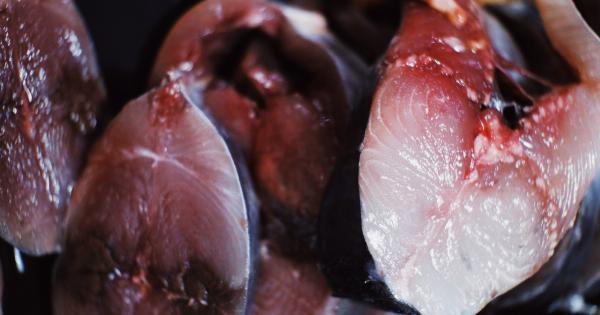Have you ever wondered if your blood type can influence what types of food are best for you? The concept of eating according to your blood type has gained popularity in recent years, with proponents claiming that specific diets tailored to each blood type can improve overall health and well-being. In this article, we will explore the principle behind the blood type diet and provide food recommendations for each blood type.
Blood Type A
If your blood type is A, you are believed to have descended from agricultural ancestors. Therefore, the blood type A diet focuses on fresh, organic, and plant-based foods.
It is recommended to consume a variety of vegetables, fruits, whole grains, legumes, and lean sources of protein such as fish or tofu. Additionally, foods rich in antioxidants, such as berries and green tea, are beneficial for blood type A individuals.
Blood Type B
People with blood type B are considered to have a more flexible digestive system that can tolerate a wide range of foods. The blood type B diet emphasizes a balance between animal protein, dairy products, grains, and fruits and vegetables.
It is advisable to include a variety of protein sources like eggs, lean meats, and dairy products. However, individuals with blood type B should avoid chicken, corn, peanuts, and wheat.
Blood Type AB
As the rarest blood type, AB individuals are thought to benefit from a combination of the blood type A and B diets. The blood type AB diet suggests a balanced intake of fruits, vegetables, grains, legumes, and lean proteins.
Seafood, tofu, dairy, and green vegetables are highly recommended, while individuals with blood type AB should limit consumption of red meat, kidney beans, and seeds.
Blood Type O
Blood type O is considered the oldest blood type, associated with hunter-gatherer ancestors. The blood type O diet focuses on high-protein foods, including lean meats, fish, and poultry.
It is recommended to avoid grains, legumes, and dairy products, as they might be less compatible with the digestive system of blood type O individuals. Instead, green vegetables, fruits, and seeds are encouraged.
General Dietary Recommendations for All Blood Types
While the blood type diet suggests specific food groups for each blood type, some general guidelines remain consistent for all types:.
- Avoid processed and refined foods: Regardless of blood type, it is crucial to steer clear of highly processed and refined foods that can negatively impact overall health.
- Stay hydrated: Drinking sufficient water is essential for everyone, regardless of their blood type. Hydration promotes proper digestion, detoxification, and overall well-being.
- Listen to your body: Each individual has unique dietary needs and sensitivities. Pay attention to how your body responds to different foods and adjust your diet accordingly.
- Moderation and balance: Balancing your meals with a variety of whole foods and practicing portion control is vital for promoting optimal health.
The Science behind Blood Type Diet
It is important to note that the scientific evidence supporting the blood type diet is limited. Critics argue that blood type alone cannot determine an individual’s nutritional requirements or influence physiological reactions to specific foods.
While some studies have shown certain associations between blood type and other health factors, more research is needed to draw definitive conclusions.
Final Thoughts
The concept of the blood type diet provides an interesting perspective on how our genetic makeup might influence our dietary needs.
While the blood type diet has gained popularity, it is crucial to approach it with a critical mindset and consult a healthcare professional or registered dietitian before making significant changes to your diet.
























